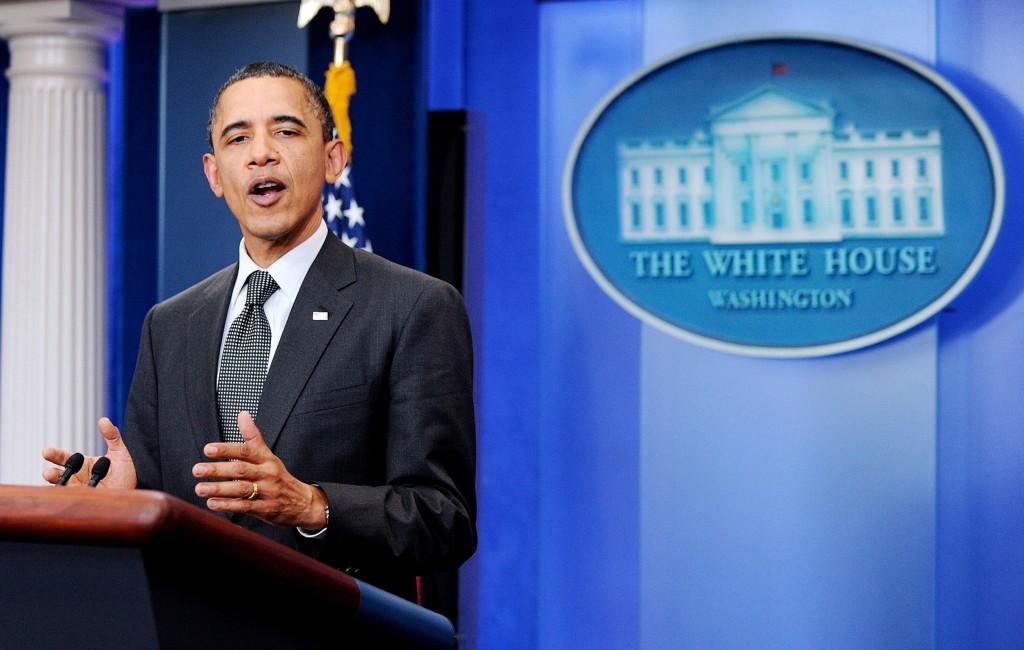Obama as a Symptom, Not a Cause
It’s Much More Complicated Than Just a Matter of Having Chosen the “Wrong” Guy
July 24, 2011

Published: May 5, 2011
Obama-mania is dead. No more “YES WE CAN,” no more bright-eyed and bushy-tailed, no more howling at the moon for our President. Instead, America has reverted to her old self, the self who wrings her hands and eventually throws them up, realizing once again that “hope” is something that never made much sense in the political arena, anyway.
Apathy rules the day; it’s the safer option, in the face of a president who wasn’t the superhuman we expected him to be. He remains unnervingly platonic, most pronounced now as our currently Republican-held Congress advances its “America for the rich by the rich” incoherent mish-mash. Each day he reiterates that America is not the sort of place that will allow reductions in Medicare even as he does nothing definitive in defense of this and other middle-class American bastions.
The question then becomes: Is he trying too hard to keep both Republicans and Democrats happy, ultimately satisfying no one? Are his platitudes getting too insultingly—too irresponsibly—close to running his presidency, his personality? I’d sound an unequivocal “Yes.” Is this ground for a new Democratic candidate in 2012? Is there a better wo/man out there? There could be, but this doesn’t necessarily mean we should pick a new person.
Despite his frustrating imperfections, it is essential to realize that it’s not Obama’s fault that he’s become a dithering ghost of his former glory. I remain unconvinced that anyone else could do a better job, precisely because ours is not a political system which is friendly to, or even really realistic to, game-changers—there’s too much emphasis on re-election based on steadfastness to ideology for that.
If Obama’s been less than exemplary, there’s more to it than just attributing it to some inherent lack of chutzpah in the man himself. He’s a symptom of what has turned into a very broken, disrespected system. It’s high time Americans realized that their disenchantment with Obama was inevitable: hopes that high in a government this out-of-touch with itself were never destined to end well.
Washington is a place for the status quo. That’s what is valued there, and so it thrives, remaining despite new problems and new fears. The brand of status quo you subscribe to—Republican Red or Democrat Blue—determines the degree to which other people will listen to what you have to say.
In this way, Congressmen and women reduce themselves to nothing more than a few neatly packaged phrases, and in the process, reduce their own constituents to nothing more than these same sayings. This osmosis, of course, convinces constituents that they just are whatever ideology they put stock in, leaving them expecting nothing better from their representatives, unprovoked to question their re-election decision.
Where in this whole configuration is there room for the brute, bursting reality of America’s economical and political troubles? In the midst of these very serious issues, our Congress remains stubbornly preoccupied with color, acting as if the future of America is some sort of prize that their side must win. Their responsibility lies in the health of this country, not the health of their political party, and if that means taking off the blinders of ideology for just one single moment, I’d say they best get on that. Pronto.
Where does Obama fit into all of this? Exactly nowhere, and that’s just the problem. In a Congress made up of people who are focused on listening only to themselves speak, there is not much room for a president. Everyone has already come into Capitol Hill with the intention of seeing their side win, so where’s the actual need for a leader, particularly if he’s one who advocates bipartisanship, the very thing which each side spends the whole day squelching?
This is not to say that Obama has been a very effective, persuasive or brave speaker—he hasn’t. However, it also seems like a false argument to accuse Obama of not following through on his election promises—which, let’s face it, were of necessity politically and could not have been taken at full face value to begin with.
Given this, is a new candidate really what the Democrats need? From where I’m standing, such action would just be a band-aid, a new diversion to attach onto in order to distract Democrats, Republicans and every other citizen from the real problem: America’s Congress does not show the intellectual flexibility necessary to thrive under stress.









